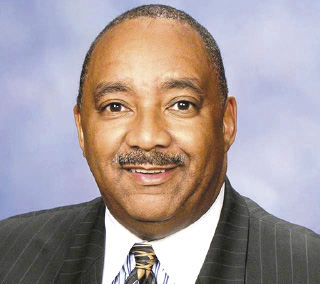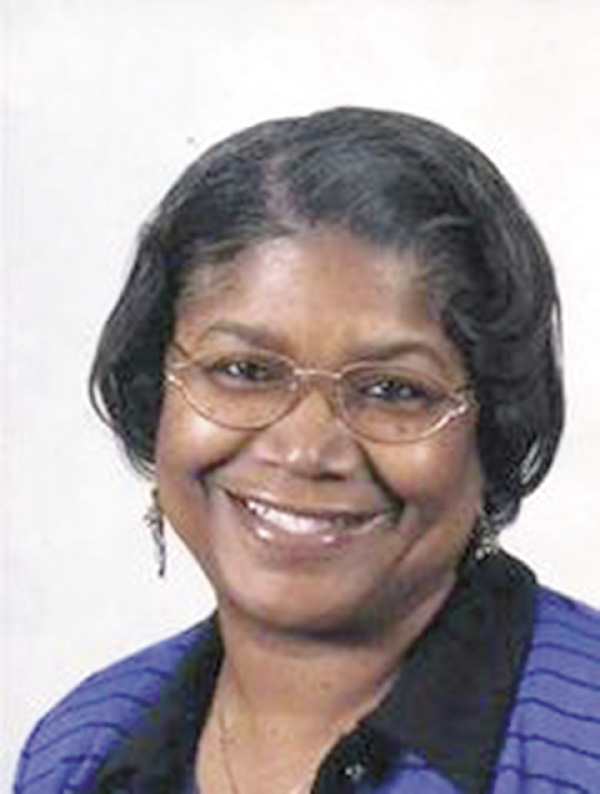
(pictured: Fred Durhal) Former State Representative Fred Durhal is vying to become the next member of the Detroit City Council to fill the vacancy created by the departure of Saunteel Jenkins.
But Durhal is only one of 17 contenders for a seat on the most talked about legislative body in the state. The likely winner will have to garner support from a majority of the council members, each of whom have their own choice of who should succeed Jenkins, who left council to head a nonprofit group.
Durhal, like the other candidates, including John Bennett, Adam Hollier, David Nathan, David Bullock, Paula Humphries Janee Ayers, Dustin Campbell, Tyrone Carter, Kenneth Donaldson, Frazier Kimpson, Paula Humphries, Roy McCalister, Bernard Parker, Wanda Redmond, Robert Thomas, Beverly Kindle Walker and Debra Walker brings different credentials to the position.
 (pictured: Adam Hollier) “Detroit is at a critical financial juncture. Its city government has to tread very carefully as it develops and implements its first post-bankruptcy budget. Although there is a slight surplus, council and the mayor must adhere to the Plan of Adjustment while it recovers from insolvency,” Durhal said. “We must also create new revenue sources that can augment what few resources city government has. The mistakes of the past cannot be allowed to happen again. If we handle this right we will have turned a deficit into a great recovery and a model for America’s urban centers.”
(pictured: Adam Hollier) “Detroit is at a critical financial juncture. Its city government has to tread very carefully as it develops and implements its first post-bankruptcy budget. Although there is a slight surplus, council and the mayor must adhere to the Plan of Adjustment while it recovers from insolvency,” Durhal said. “We must also create new revenue sources that can augment what few resources city government has. The mistakes of the past cannot be allowed to happen again. If we handle this right we will have turned a deficit into a great recovery and a model for America’s urban centers.”
 (pictured: Beverly Kindle Walker) Hollier, former chief of staff to State Senator Bert Johnson, said he will bring a fresh perspective to the council.
(pictured: Beverly Kindle Walker) Hollier, former chief of staff to State Senator Bert Johnson, said he will bring a fresh perspective to the council.
“The most important thing is that I am young resident of Detroit and I am planning on raising my family in the city,” Hollier said. “You don’t see that as a narrative right now. I hear people talk about young Whites who are moving in but no one is talking young Blacks who want to raise families in the city.”
Hollier said being on the council will allow him to tackle the issue of property values and the school system, all of which he said make it difficult for young African American families to move into the city.
“We have to be able to better navigate our own business and start dealing with the schools,” Hollier said. “We need people on council who are going to have kids in the school system.”
The former legislative aide said Detroit has a long way to go to attract people to the city who can afford services.
“The mayor did something with the water issue but we need to raise money from private philanthropy to balance that water fund,” Hollier said. “We are not going to have the option anymore of having three or four employers employing everybody in the city. We need to talk about entrepreneurship and supporting small businesses.”
He said the question haunting Detroit is, “How do we get more young Black folks to move back into the city?” because most of his classmates with families don’t live in Detroit anymore.
Durhal, on the other hand, said, “Detroit must reduce the number of unemployed citizens. Neighborhoods cannot survive if people who live in them cannot find work. High unemployment breeds crime and a sense of hopelessness that becomes a culture if nothing is done.”
Blight has been a front and center issue in Detroit with support from the private sector leaders like Dan Gilbert, the founder and chairman of Quicken Loans.
“The blight that we see must be reduced if we are to be inviting to more community investment. I deeply understand these issues and I intend to work hard to return Detroit to the greatness it once had by focusing on job training, economic development and job creation,” Durhal said. “Success here will strengthen core communities and hasten the economic stabilization of Detroit.”